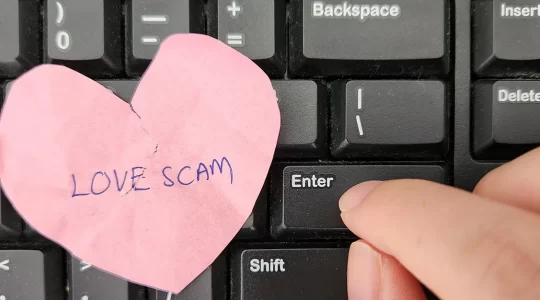Stolen Identity: How to Protect Yourself & Spot Warning Signs

Identity theft is one of the fastest growing crimes and often people are unaware of it until it’s too late. As your trusted credit union, we want to help you stay one step ahead – here are a few tips to protect yourself and early signs to watch out for.
Tips to Help Protect Yourself from Identity Theft
- Use strong passwords: Avoid using short/simple passwords or the same password on multiple sites. Long, unique, and hard to guess passwords are the best and harder for fraudsters to guess. We understand that it can be difficult to remember one complex password, let alone many. We recommend using a secure password manager to keep track of them.
- Enable Two-Factor Authentication (2FA): This adds an extra layer of security. Whether it’s a code sent to your phone or email or other 2FA option – it’s meant to help keep your account safe even if that complex password is hacked.
- Monitor your accounts: We recommend checking your account and transactions regularly – either through digital banking, our mobile app or with the monthly statements. Keeping an eye on your accounts can help catch unfamiliar or fraudulent transactions. The sooner it’s caught, the faster we can help you. Through our digital banking/mobile app, we offer the ability to turn on an array of account alerts to help you. You can also temporarily lock your debit/credit card if you are unsure of a recent transaction or unable to find it.
- Monitor your credit report: Check for new or unfamiliar loans or sudden changes in your credit score. You can enroll in our free Credit Score Solution within our digital banking and review your credit score and report periodically. You can also receive free credit reports for Equifax, Experian and TransUnion once a year from annualcreditreport.com.
- Be cautious of phishing scams: Scammers can use urgency to put you at risk of making sensitive decisions quickly. Don’t rush! Take the time to think through the request and consider whether the call, text or email is real. Be suspicious of communications asking for sensitive information – don’t provide personal information.
- Shred personal documents: Before throwing out anything with your name, account number, or Social Security number or documents like bills, bank statements, tax documents or credit card offers – shred them. Identity thieves still dumpster dive to find an easy target.
- Secure Wi-Fi: Fraudsters have gotten better at being able to hack unsecured networks. We recommend avoiding logging in or checking sensitive accounts on public Wi-Fi unless you are using a secure VPN.
Warning Signs That Your Identity May Have Been Stolen
- Unfamiliar transactions or withdrawals: If you see charges on your debit or credit card that you didn’t make – report them as soon as possible, no matter the amount.
- Unfamiliar bills or credit cards: If you receive a statement for a credit card you didn’t apply for or bill with a company that’s unknown to you – it’s a red flag that your identity might have been used fraudulently.
- Rejected tax return: This could mean that someone is using your Social Security Number to fraudulently file taxes in hopes of getting free money. The IRS considers this a form of identity theft – report it immediately to the IRS and state revenue department.
- You stop receiving mail or emails: If you stop receiving bills or bank statements via regular mail or email, this could be a sign that a fraudster got your information and changed your address to redirect and cover their tracks.
- Collector calls about unknown accounts: If you receive a call(s) about a debt or negative account that’s not yours – someone may be using your identity and personal information. You can work with that collector to get information and file a police report, dispute the account, etc.
If you think you are a victim of identity theft:
- Don’t be afraid or embarrassed – identity theft can happen and we are here to help you.
- Report it at ftc.gov. They’ll help in creating a recovery plan.
- Contact your financial institution immediately – the sooner you let them know, the easier it is to help you with your accounts and loans.
- Monitor your credit – enroll in our free Credit Score Solution within our digital banking and review your credit score and report periodically. You can also receive free credit reports once a year from annualcreditreport.com.
- Freeze your credit – you can reach out to one or all three of the Credit Bureaus to put a temporary freeze on your credit. This will make it so new loans can’t be added or your credit pulled while the freeze is in place. And you can unfreeze your credit at any time.
While identity theft can be overwhelming, a little prevention goes a long way. Knowing the signs and the steps to act quickly can make a big difference. You are not alone, we are here to support you! If you have questions or think something isn’t quite right, don’t hesitate to contact us by call/text 503.588.0211 or email creditunion@ourgrovecu.com.




